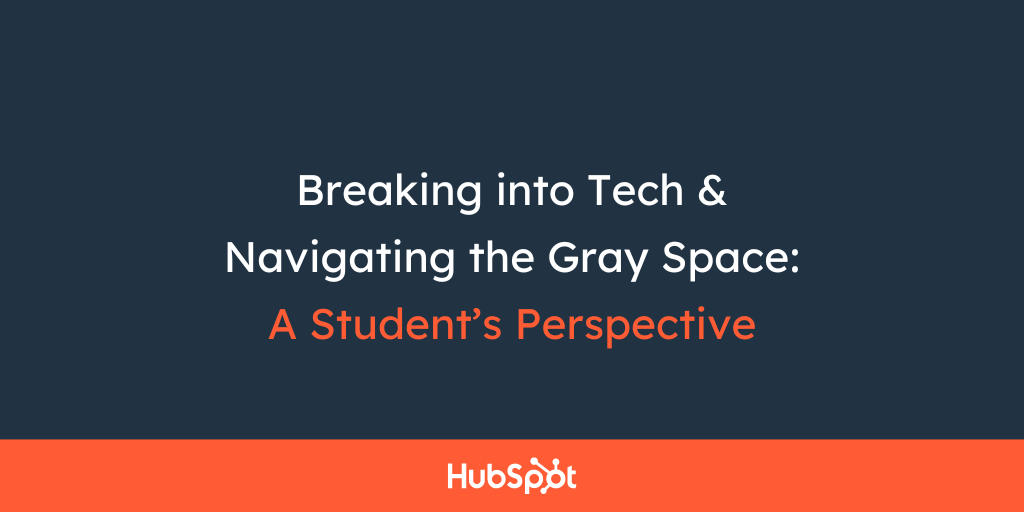

“Allow your passion to become your purpose, and one day it will become your profession” - Gabriel Bernstein.
When I was 13, if you asked me what I thought my professional passion would be as an adult, I would've told you I’d be in the NBA, playing for the Celtics, and making millions of dollars. Now I’m 30, working in human resources at a technology company, not making millions of dollars, and yet somehow still following my passion.
How did this happen?
I’ve been a dorm parent, an admissions counselor, a college counselor, and an HR professional -- a seemingly unconnected list of positions that presents as the career of someone who has no defined career path. However, I’ve always been able to tie my career together through my passion -- supporting others.
Your passion is not a ‘dream job’ or even how much money you make - it’s deeper. Your passion is what helps you find direction in life and work. It becomes the overarching theme of why you do what you do. It’s what gets you up in the morning. Without a passion, we get stuck, lose motivation, and lack purpose. With a passion, we see challenges as opportunities, constantly look for ways to grow, and ultimately find the ever-elusive ‘career success’.
I didn’t discover my passion in my college philosophy class (that was for catching up on sleep). My parents didn’t tell me what my passion would be while I was growing up. I discovered it through a series of life decisions and experiences.
How can you discover your passion and use it as a guiding force throughout your career?
Live a life of ‘oh wells’ vs a life of ‘what ifs’.
I quit my first job out of college after two weeks. It was 2010, the economy sucked, and I was happy to find a job that paid me anything. I thought I had found a career path. However, after week one, I hated it. I felt no purpose, and did my best Usain Bolt impression when the clock struck five. However, to this day, it was one of the most formative experiences of my career.
It’s impossible to know your passion unless you try new things. Have you ever had that moment when you try a type of food you’ve always thought you hated and are surprised to find you actually like the taste? The same thing can happen in your career. Be open to taking on new opportunities, new challenges, and new roles. Every new experience is an opportunity to identify what you love and what you hate. If things aren’t right, don’t hesitate to move on, but each opportunity is a chance to further identify what your passion truly is.
Share your passion with others.
Recently, during a team-building session, my colleagues and I went through an exercise called “What's Your Word” - designed by MyIntent Project. The organization’s mission is to “be a catalyst for meaningful conversations and positive actions by encouraging people to share more truth and inspiration with each other”. Each of us had to come up with one word that best described their purpose, hand-carve the word into a piece of jewelry, and present to the team why they chose that specific word. It was enlightening to share my passion with others and to learn what drove my teammates.
Sharing your passion with your boss, your coworkers and your family and friends creates a team of people who will support and enable you to follow it. The more that people are aware of what motivates you, the more they’ll seek you out for fulfilling assignments. Also, as you learn more about your teammates’ passions, you can delegate projects that may align with theirs’. Leaning into your passion and leveraging others’ allows you to do things that excite you more often.
Always keep an open mind.
As I mentioned earlier, I’ve held a number of different positions in varying industries. I’ve changed jobs for multiple reasons: lack of growth opportunities, higher pay, moving to a new city, etc. I wasn’t always sure where I was headed, but when deciding what to pursue, I used my passion - supporting others - as my beacon. Keeping an open mind allowed me to find jobs that fulfilled my compensation and culture preferences while enabling me to support others in my work.
As a dorm parent, I was responsible for supporting high school students as they lived away from home throughout their formative years. As a college counselor, I was tasked with supporting low-income students as they navigated the college application process, and as an HR business partner, I’m responsible for supporting employees and managers at HubSpot throughout the employee lifecycle.
Although your passion may exist in one industry or job, brainstorm other careers where you can fulfill the same passion. Build a list of those roles and use that as a starting point when deciding what opportunities to pursue.
None of us want to be stuck in a role where we’re watching the clock, waiting for each day to end. We want to enjoy work, be energized by it, and feel like we’re making an impact. Taking chances on new opportunities, sharing your passion with others, and keeping an open mind will go a long way towards helping you connect your passion and your work.
What’s your passion? Share it with us in the comments!


.png)






